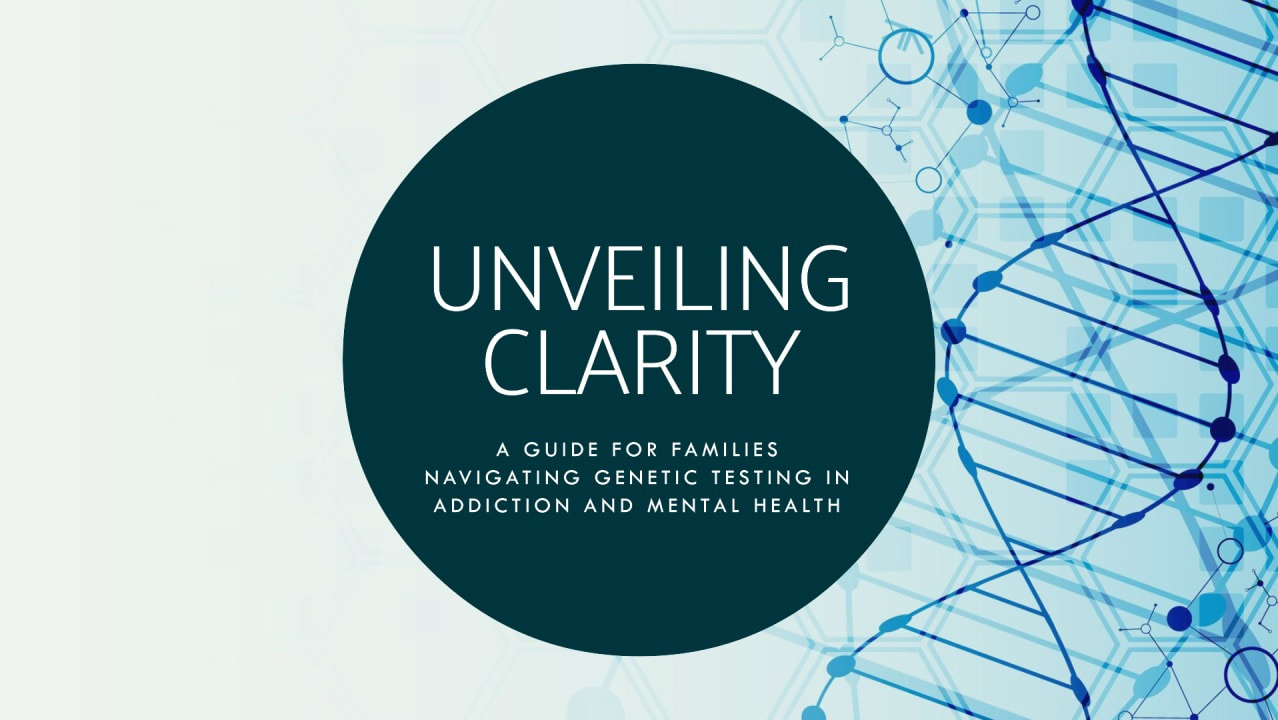Desperate Parents: Why Tough Love Fails Children Struggling With Addiction. What to Do Instead.11/27/2023 Introduction
When a loved one struggles with the experience of addiction and/or mental and emotional health challenges, families often feel lost, afraid and powerless. The path ahead seems daunting and unclear. Where can families turn to find hope and support when they need it most? The good news is that healing happens through human connection. By prioritizing compassion and vulnerability within our most intimate relationships—our families—we can transform suffering into wisdom. This ripples outward to inspire our communities. In this in-depth guide, we’ll explore the research behind connection-based healing and provide actionable steps families can take to rebuild trust. Read on to learn why leading with empathy, rather than judgment, can positively change the trajectory for every member of the family. The Problems with the Current Approaches For too long, society’s approach to addiction and mental illness has caused more harm than healing. Rather than compassion, we’ve responded with criminalization, marginalization, and stigma. Families struggling with a loved one’s problematic substance use or mental/emotional health crisis often feel alone. The typical supports they’re offered usually center around correction rather than connection. But research clearly shows that punitive measures are often counterproductive. They erode trust and deepen shame. This increases the risk of resuming use and self-harm. On the other hand, science confirms that healing happens in safe, caring relationships. Love is literally the best medicine when it comes to overcoming trauma. Why We Need to Shift from Fixing to Supporting When a family member seems “broken” or acting in destructive ways, it’s natural to want to fix them. However, this urge often backfires. It places the struggling individual in an inferior position while the “helpers” assume authority over them. This power differential gets in the way of vulnerable, egalitarian relating. The person needing help shuts down. They feel judged rather than “gotten.” They perceive the family as against them rather than beside them. That’s why the most powerful approach is to walk with our loved ones as equals. To gently guide rather than forcibly steer them. To offer suggestions while also seeking to understand their inner world. Cultivating Open and Honest Communication The first step families can take is creating a safe space for free emotional expression. This means leaning into difficult conversations with radical sincerity and respect. Here are some tips for nurturing open and supportive dialogue:
Getting Help from the Shared Wisdom of Others Seeking outside support can also have tremendous healing benefits for families. There are many forms this can take. Peer support groups connect people facing similar struggles. By sharing stories and insights, fresh perspectives emerge organically. Families realize they are not alone in their pain or the challenges they face. There are also dedicated professionals ready to assist families with compassionate care. Some specialize in family therapy or interventions while others provide broader emotional support. What matters most is that any help comes from a place of wanting to understand, not condemn. The role of therapists, counselors and coaches is to guide families as they uncover their inner wisdom and strength. Learning Healthy Coping Strategies Together Managing difficult emotions and keeping faith through ups and downs are essential skills for the healing journey. Families can gently encourage positive coping strategies like:
By modeling self-compassion, families show their struggling member that it’s possible to move through pain. Over time, healthy coping habits help stabilize moods, reduce the urge to self-medicate, and build resilience. Working Through the Underlying Root Causes and Triggers In many cases, addiction or mental and emotional health crises signal deeper issues needing attention. Without judgment, families can lovingly explore potential root causes and triggers with the affected loved one. Common contributors often include:
By reflecting together on these potential origins, families open the door to healing intergenerational wounds. They name destructive patterns passed down unconsciously so that new ones can form in their place. Committing to the Messy, Imperfect Process The journey of healing as a family is not quick or linear. There will be heartbreaking relapses, swirling confusion, and clashing perspectives. Through it all, the magic ingredient is that family members refuse to give up on each other. By acknowledging healing is messy, imperfect and ever-changing, families stay grounded. They celebrate small signs of progress through the darkest days. They offer absolution not condemnation when setbacks occur. Most importantly, they cling to love and the certainty that their bonds run deeper than any illness. With this as an unshakable foundation, breakthroughs inevitably emerge in time. Becoming Beacons of Hope Families that do the hard work to heal together often feel called to support others on their journey. By opening up about their process, they break down barriers of shame and secrecy around addiction, mental illness and trauma. Offering community education, volunteering in support spaces, advocating for policy changes and other such efforts spotlight that healing happens through compassion and connection. Families give people struggling silently permission to seek help. They illuminate that there are no “lost causes” when unconditional love lights the way. Conclusion: Choosing Connection If your family longs for hope and a way forward but feels lost in the dark, know that you are not alone. By taking steps - however small - toward greater mutual understanding through open communication, radical vulnerability and unconditional support, you tap into the deepest truths of what makes us human. When we choose love, stories of illness transform into tales of healing. Slowly but surely, the broken pieces come back together...not because a problem is “fixed” but because hurt hearts once isolated now beat as one. Call to Action If this article resonated with you, take a moment now to embrace someone in your family and tell them you love them unequivocally - not despite their pain but because their story is what makes them a unique thread in the vibrant tapestry that is your family. Then continue nurturing the bonds of trust and affection that will get you through this together. Seek any additional support you need - whether counseling, coaching, peer groups or other resources. Know that families across the world walk this path with you. Lastly, when you feel ready, consider sharing your story to offer other families hope. The greatest antidote to stigma is compassion fueled by the courage to be vulnerable. Help accelerate the cultural shift toward connection by adding your voice.
0 Comments
Introduction
Parenting a child struggling with addiction can feel like an overwhelming and lonely journey. As a parent, your heart breaks seeing your child suffer from problematic substance use. You may constantly feel anxious and stressed about their safety and future. This takes a significant toll on your own mental health and neurobiology. When under prolonged stress, your brain’s threat response system remains activated, leading to a compromised sense of safety and resilience. Restoring stability in your nervous system and brain function is crucial to cope with your child’s addiction in a healthy manner. This article aims to provide you with practical tips and guidance to find peace and rebuild your sense of emotional safety. Understanding the Neurobiology of Safety To regulate stress and nurture a sense of safety, the brain needs to maintain a balance between its emotional command system and its threat response system. Addiction severely impacts this balance in both you and your child by overactivating the threat response system. As a result, you may constantly feel agitated, anxious or depressed. Rebalancing your neurobiology requires self-care strategies that address these issues. The Healing Power of Self-Care Caring for yourself is not selfish — it enables you to support your child better. Self-care can remodeling your neurobiology from stress-reactivity to stress-resilience. Simple practices like exercising, eating nutritious meals, and getting adequate sleep help calm the body’s stress hormones. Set aside time each day for uplifting activities like reading, singing, or spending time in nature to relax your mind. Be mindful of your limitations and don’t hesitate to ask for help from loved ones. Consider undergoing coaching, counseling or joining a parent support group as well. Fostering Safe and Supportive Environments The home environment plays a key role in helping both you and your child feel secure. Create a positive atmosphere free from blame, anger or guilt-tripping. Display affection and validate your child when they display responsible behaviors. Maintain family traditions like dinner together, games night, or holiday celebrations to reinforce emotional bonds. Consult with other family members on how to make the home environment more nurturing for your child. Communicating with Compassion Communication can become strained between parents and children facing addiction. Avoid lectures or criticism. Instead, have open conversations where you validate your child’s emotions. Express love and concern while highlighting the unhealthy consequences of their actions. Listen empathetically when they share their struggles. Discuss what recovery would look like for your child and offer your support. With time, these compassionate conversations can improve trust and understanding. Seeking Professional Help The road to recovery often requires professional guidance. A licensed counselor can offer addiction therapy for your child and greatly help you as well. Your child may benefit from inpatient detoxification, behavioral therapy, support groups, or medication-assisted treatment. As a parent, consider undergoing counseling or joining Al-Anon, Nar-Anon, Families Anonymous, or SMART Recovery meetings for support and comfort. Consult with addiction specialists like psychiatrists, psychologists, family recovery coaches and licensed social workers. Integrating professional help strengthens the recovery journey. Setting Healthy Boundaries Boundaries are essential for your own self-care while navigating your child’s experience of addiction. Be clear about behaviors you will not accept — like violence, stealing or excessive lies. Withdraw from situations where your child is intoxicated or verbally abusive. Regain a sense of stability in your life by upholding daily routines. Most importantly, release the false burden of responsibility for your child’s experience of addiction. Remind them of their ability and responsibility to manage their health and that you’ll always be there to champion the process. Offer love and support while also prioritizing your mental and emotional wellbeing. Nutrition and Exercise for Healing Proper nutrition and exercise helps relieve stress and boost neurobiological resilience. Eat more mood-boosting foods like leafy greens, fatty fish, nuts and fruits. Stay hydrated and limit caffeine. Daily exercise, even just 30-minute walks, can significantly reduce anxiety and depression. Yoga is also beneficial for promoting emotional regulation and body awareness. Make nutrition and exercise priorities not just for physical health but also your mental and emotional wellbeing. The Comfort of Mindfulness Mindfulness practices are powerful tools for parents to manage distress and find calm. Meditation, focused breathing and mantra chanting help activate relaxation responses in the brain. Consider undergoing Mindfulness-Based Stress Reduction therapy. Stay present in the moment when doing daily activities, without judgment. Observe your thoughts non-reactively when stressed. Frequently take mindful breaks to restore inner equilibrium and safety amidst the chaos of addiction. Staying Informed and Educated Educate yourself extensively about the nature of addiction, available treatments and realistic expectations of recovery. Read evidence-based resources and attend local support group meetings. Understanding addiction as an adaptation to trauma can help you respond more effectively and with compassion. Stay informed on various types of treatment programs and behavioral interventions as well. Share what you learn with family members so you can unite as a well-informed support system. Cultivating Hope and Patience Recovery/healing is a long process with ups and downs. Celebrate even small wins like your child agreeing to coaching and/or counseling or having healthy days. Remember we celebrate ANY positive change. But also realize healing is not a straight line — refrain from blaming, shaming or judging yourself or your child. Focus on the progress made rather than just the work remaining. And remember, your child’s experience of addiction does not define you as a parent or who your child is. Have faith that with skillful, consistent love and support, recovery/healing is possible. Prioritize emotional healing and regularly practice self-care. This challenging journey can become easier when you make your own health and inner peace a priority. By taking steps to restore safety in your neurobiology, you equip yourself to better aid your child struggling with addiction. Have courage, seek help and believe in growth. Both you and your child have immense strength; let compassion guide you forward. Take the First Step Towards Healing I hope this article has provided you with guidance to begin restoring stability and peace in your neurobiology as you support your child through the experience of addiction. While the road ahead is challenging, take comfort knowing there are many resources and supports available and the vast majority of people mature out of the experience of addiction. You are not alone. Start implementing even one self-care tip today. Have a candid discussion with your family about how to foster healthy communication. Look into a local support group meeting you can attend. Identify a professional counselor or coach experienced in addiction to consult. Small steps in the right direction can make a world of difference. Prioritizing your emotional and mental health and neurobiological needs equips you to truly help your child. Have courage and know that healing is possible for both you and your loved one. If you are feeling completely overwhelmed, reach out to me and we can discuss customized solutions for you and your family. This difficult chapter can become a time of growth and meaning. I believe in you — and together we will find a solution. Introduction
Parenting is a journey filled with challenges and triumphs, and this journey takes on added layers when navigating the complexities that arise from a child’s experiences with trauma. While diagnoses can provide a framework for understanding and addressing certain behaviors, they are not always necessary to foster a powerful, healing relationship with your child. This article explores how parents can effectively support and nurture a child who is grappling with the impacts of trauma, without focusing on a specific diagnosis. Understanding Trauma and Its Effects Trauma can manifest in various ways, influencing a child’s emotions, behaviors, and relationships. Children impacted by trauma may display intense emotional reactions, difficulty trusting others, a heightened sense of alertness to perceived threats, or challenges with self-regulation. Recognizing these signs is the first step in providing the right support. Creating a Safe and Predictable Environment A sense of safety is fundamental. This includes not only physical safety but emotional safety as well. Establishing routines and predictable responses provides a sense of stability. Consistency in your reactions and rules helps build trust, an essential foundation for children who have experienced trauma. Fostering Open Communication Encourage open, non-judgmental dialogue. Let your child know that their feelings are valid and that they can talk to you about anything without fear of criticism or dismissal. Active listening, where you attentively and empathetically listen to their concerns, reinforces your support and understanding. Developing Emotional Regulation Skills Teach and model emotional regulation skills. This can involve identifying emotions, understanding what triggers them, and learning healthy ways to express and manage them. Techniques such as deep breathing, mindfulness, and positive self-talk can be invaluable tools for a child learning to navigate their emotional landscape. Encouraging Healthy Relationships Help your child build positive relationships with others. This includes fostering friendships with peers, connecting with supportive adults, and participating in group activities. Positive social interactions can enhance self-esteem and provide a sense of belonging. Empowering Through Choices and Boundaries Empower your child by offering them choices within set boundaries. This approach helps them develop a sense of control over their lives, which is often compromised in traumatic experiences. It also teaches responsibility and decision-making skills. Seeking Professional Support While a strong parent-child relationship is crucial, professional support from therapists, counselors or coaches experienced in trauma can be highly beneficial. They can offer tailored strategies and therapies to address your child’s specific needs. Practicing Self-Care and Seeking Support Parenting a child impacted by trauma can be emotionally taxing. It’s important for parents to take care of their own mental and emotional health. Seeking support, whether through friends, family, or support groups, is not a sign of weakness but a crucial aspect of maintaining your ability to provide the best care for your child. Conclusion Remember, a diagnosis is not a prerequisite for understanding and supporting your child. By focusing on creating a nurturing environment, fostering open communication, teaching emotional regulation, and seeking professional support when needed, you can build a powerful, healing relationship with your child. The journey may have its challenges, but it is also filled with opportunities for growth, resilience, and deeper connection. Join the Journey of Healing and Empowerment As you navigate the rewarding yet challenging path of parenting a child impacted by trauma, remember that you are not alone. Every step you take towards understanding, supporting, and empowering your child makes a profound difference in their healing journey. We invite you to join a community of parents and caregivers who are committed to transforming challenges into opportunities for growth and deeper connection. Take the Next Step
Let’s Build a Supportive Community Together I can help you to access resources, join support groups, or participate in our forums. Together, we can create a nurturing network for parents and children affected by trauma, fostering resilience and hope for a brighter future. Your Role is Invaluable Your love, understanding, and support are the pillars that can help your child rebuild and thrive. Embrace this journey with compassion and patience, and witness the incredible strength and resilience that lies within your child, and within you. Take Action Today Reach out to learn more, connect, and grow. You’re not just raising a child; you’re nurturing a future, and every step you take is a leap towards healing and empowerment. A healthy connection refers to a relationship between individuals that is characterized by mutual respect, trust, support, and good communication. It promotes the well-being and growth of everyone involved. Here is a breakdown of what constitutes a healthy and safe connection and what humans need to avoid loneliness:
Characteristics of a Healthy Connection
What Humans Need to Avoid Loneliness
Feeling Connected When someone is connected to others in a healthy way, they typically:
Healing from Addiction and Trauma in Families In families where addiction has occurred as a result of trauma, fostering healthy connections is crucial for healing. Here is how it all relates:
Conclusion Healthy connections contribute significantly to our overall well-being and happiness. They provide a support network, reduce feelings of loneliness, and enhance our life satisfaction. Cultivating such relationships requires effort, mutual respect, good communication, and the ability to set and respect boundaries. Join Me in Healing and Hope If you or a loved one are navigating the challenges of addiction and trauma, you’re not alone. Let’s break the cycle of isolation together. Connect with me to find a supportive community, gain access to resources, and start your journey towards healing and resilience. Your story matters, and within our community, you’ll find understanding, support, and the strength to rebuild. Reach out today — let’s heal together. For families struggling with the devastation of addiction, recovery can often feel like an impossibility. The cycles of resumption of use, financial strain, and emotional turmoil leave many convinced that nothing will ever change. However, by cultivating psychological flexibility, families can begin to break free of these destructive patterns and rebuild hope for the future.
What is Psychological Flexibility? Psychological flexibility refers to the ability to fully engage with the present moment without defense, and to persist or change behavior in the service of chosen values. Rather than remaining rigidly attached to avoidant coping strategies, psychological flexibility allows individuals to open up to difficult thoughts, emotions, and experiences when doing so serves their goals and values. This adaptability and openness to the “now” is key in transforming not only the recovering addict, but the entire family system. The Roles Family Members Get Stuck In When addiction takes hold in a family, members often adopt rigid roles that, while intended as coping strategies, can perpetuate dysfunctional dynamics. There’s the martyr mom who sacrifices everything to try to save her child. There’s the overfunctioning sister attempting to manage the chaos singlehandedly. The negative enabling dad who lends money despite broken promises. The scapegoat child who seems to do no right. These entrenched patterns of relating get acted out over and over, fueling the addiction. Psychological flexibility offers families a way out of these toxic role locks. Instead of playing out the same distressing dramas on autopilot, family members can become more aware of their mental and emotional patterns. This allows them to intentionally choose responses aligned with their values and recovery goals rather than automatically reacting from a limited role. Opening Up to Difficult Emotions At the core of many family members’ rigid coping strategies is the inability to tolerate difficult emotions like anger, grief, and fear. Avoiding and suppressing these feelings often drives behaviors like negative enabling or estrangement. Cultivating psychological flexibility involves building distress tolerance and the willingness to experience we may label “negative” emotions without becoming overwhelmed. This allows family members to stay grounded and aware even in the face of painful realities. Facing into challenging emotions, rather than numbing out or lashing out, is essential for families seeking to overcome the heartache of addiction. Communication That Creates Connection Under the weight of addiction, communication between family members often suffers drastically. Psychological flexibility opens the door to restoring connection. Defensive, aggressive communication comes from a place of self-protection and disconnection from the present moment. With psychological flexibility, family members can engage in conflict from a centered place, with openness to understanding one another’s experience. Rather than attacking or shutting down, flexibility allows for perspective taking, vulnerability, and empathy. This creates an atmosphere where problems can be solved collaboratively. Shared Vision and Values In family systems impacted by addiction, members often lose connection with their values amidst the chaos. One person’s values may be distorted to “keeping the peace” while another’s becomes hyper-independence. Recovery requires reconnecting with values around wellness, authenticity, trust, and community. Psychological flexibility helps families clarify their vision for the future and shared values. Instead of acting from fear or a sense of futility, they can make decisions aligned with their hopes for health and wholeness. This provides direction and motivation to take difficult but needed actions to interrupt the patterns of addiction. Coping with Relapse: Judgment vs. Compassion For families dealing with cycles of resumption of problematic use, psychological flexibility may be the key to maintaining loving connection and focus. A psychologically flexible response to reoccurrence of symptoms replaces frustration and shame with openness, healthy boundary setting, and compassion. Family members with psychological flexibility understand resumption of use as part of the process. Their adaptability allows them to persist in recovery efforts even in the face of “setbacks”. They process the emotions resumption of use brings up and use them to inform responses, rather than reacting hastily. This non-judgment helps the recovering person stay engaged on their path to wellness. Rediscovering Purpose and Passion Beyond abstinence, recovery is also about redesigning a meaningful life. For lasting transformation, those in recovery need support exploring interests, values, and passions subdued during active addiction. The psychological flexibility of family members enables them to embrace this reconstruction with optimism. They demonstrate adaptability in adjusting to new norms and encouraging their loved one’s growth. With flexibility, families can discover renewed purpose together, using values as a compass going forward. Conclusion: The Possibility of Growth Psychological flexibility is a game changer for families seeking to break free from addiction. By staying grounded and opening up in the present moment, family members can respond to challenges with intention, compassion, and wisdom. They can communicate and problem solve in constructive ways that may have seemed impossible before. Psychological flexibility removes the shackles of harmful role locks and perceived powerlessness. Ultimately, it allows families to access their greatest strength: the ability to learn, grow, and transform. Call to Action If your family is stuck in painful patterns of addiction, there is hope. Psychological flexibility could be the key to finally interrupting these destructive cycles and moving towards health and wholeness. Don’t wait to start cultivating this openness and adaptability — it has the power to transform your family recovery journey. Contact me today to learn how my coaching approach guides families to break free of rigid roles and respond to life’s challenges with intention and wisdom. Together we can uncover your family’s resilience. Attachment relationships provide the foundation for how we connect with others throughout our lives. When these early bonds are disrupted, it can leave lasting wounds that impact mental health and increase addiction risk. Understanding the links between attachment injury, trauma, and addiction is critical for recovery and healing.
What Is Attachment Injury and How Does It Happen? Attachment injury refers to emotional trauma that occurs within a close relationship, often after experiences of abandonment, betrayal, or breach of trust, especially during times of heightened vulnerability or need. An injury can stem from a single traumatic event or an accumulation of wounds over time. Common causes of attachment injuries include:
How Attachment Injuries Disrupt Healthy Attachment Bonds Attachment theory states that the bonds infants form with primary caregivers become an internal working model that guides expectations and behaviors in future relationships. This model helps individuals balance needs for security and exploration. Early attachment injuries can disrupt this healthy development. When caregivers are absent, rejecting, abusive, or inconsistent, children learn that the world is uncertain and relationships are unreliable. Injuries teach them that vulnerability leads to more pain instead of having needs met. As a result, insecure attachment styles often form, characterized by vigilance against betrayal, avoidance of intimacy, or anxious clinging to unreliable partners. These maladaptive patterns continue into adulthood, setting the stage for mental health issues and relationship conflicts. The Role of Trauma and PTSD Unresolved trauma is strongly correlated with attachment difficulties. Patterns such as disorganized attachment are associated with abuse, neglect, or loss of caregivers during childhood. Developmental trauma and post-traumatic stress disorder (PTSD) can thus impair attachment security. PTSD causes biological changes, like abnormal stress responses, that reinforce insecure relational strategies. Hypervigilance and emotional avoidance tend to override trust, comfort with vulnerability, or seeking help from others. PTSD also contributes to emotional dysregulation, compounding the impacts of early attachment disruption. Without healing, trauma fuels a self-perpetuating cycle: insecure attachment leads to more traumatic experiences and injury, while PTSD exacerbates attachment problems. Breaking this cycle is essential. How Insecure Attachment Contributes to Addiction Risk Individuals who lack secure attachment are more prone to use substances as a dysfunctional coping mechanism. Attachment injuries create emotional distress, relationship conflicts, and low self-worth that people often try to escape through addictive behaviors. Research shows strong links between insecure attachment styles and risk for substance abuse disorders:
Attachment injuries create inner distress and conflict that drives addiction. The inability to tolerate or modulate emotional states also leads to self-medication. However, research confirms attachment issues do not inevitably cause addiction in all cases. Other biopsychosocial factors contribute to the complex pathways of substance use disorders. Healing Through Healthy Relationships and Secure Attachment Though early attachment injuries cannot be undone, healing and developing earned secure attachment later in life is possible. Therapy approaches such as psychodynamic and interpersonal psychotherapy help process relationship issues and traumatic memories. Building a healthy support network provides corrective emotional experiences. Key elements for healing attachment wounds include:
Conclusion Early attachment injuries, especially when compounded by traumatic experiences, disrupt the development of secure attachment bonds. The resulting emotional distress, relationship conflicts, and lack of self-worth often drive individuals to “self-medicate” with substances or addictive behaviors. Research clearly shows correlations between insecure attachment styles and heightened addiction vulnerability across substances and age groups. Healing relational wounds through therapeutic and healthy social support can increase attachment security. This facilitates long-term recovery by meeting core needs for trust, connection, and emotional regulation without addiction. Families dealing with addiction face immense challenges. The cycles of problematic substance use, isolation, and dysfunctional dynamics can badly fracture relationships. Rebuilding trust and connection under these circumstances requires effort and commitment. However, healthy relationships are the foundation for healing and breaking free from the experience of addiction.
What Does a Healthy Connection Look Like? A healthy connection is one built on mutual respect, trust, and support. Both individuals feel safe expressing vulnerabilities while having their needs met. Some hallmarks include:
Why Healthy Bonds Are Crucial for Addiction Recovery In the grip of addiction, due to stigma, individuals become withdrawn and relationships deteriorate. Preoccupation with pain relief replaces interest in people. Lies, distrust and volatility create an atmosphere of walking on eggshells. Reversing this downward spiral requires rebuilding healthy connections. Breaking the Cycle of Isolation Addiction feeds on isolation. Loneliness and disconnection fuel further drug use or addictive behaviors. Meaningful healthy and stigma-free relationships disrupt this cycle, providing compassion, empathy accountability and motivation for change. Shared interests and activities related to one’s purpose also help replace the addiction. Rebuilding Trust Lies and erratic behaviors accompanying addiction undermine trust. Family members must re-learn that the person experiencing addiction is dependable and has their best interests in mind. This happens gradually through changed actions, honesty and consistency. Providing Support The road to recovery has many obstacles, from tempting triggers to high resumption of use rates. Compassionate support from loved ones helps people experiencing addiction persist through struggles. Knowing there are people who care bolsters resilience. Facilitating Open Communication Suppressed feelings and secrecy, driven by stigma, help addiction thrive. Healing involves honest discussions about experiences, triggers, boundaries and expectations. This builds understanding and strengthens the relationship. Offering a Safe Environment To lower their defenses and become willing to change, people need surroundings where they feel secure and accepted. A zero-stigma environment. Family members should provide consistency, avoid criticism and model healthy behaviors. Promoting Emotional Well-Being Addiction hampers emotional regulation and cognitive functioning. Loving human connections help counteract this biological disruption. The person literally requires help to regain stability and mindfulness. Learn how to self-regulate. Encouraging Positive Change The support and motivation provided by healthy relationships make achieving and maintaining recovery more likely. Family members can gently encourage progress while rejecting the notion of perfection. Practical Steps to Building Healthy Connections Repairing damaged or broken relationships requires effort from all involved parties. Expect change to happen slowly, since trust is rebuilt gradually over time. Listen Actively Give your full attention when speaking together. Allow the person to express themselves without interruption. Clarify details and reflect back what you heard. Suspend any judgments or assumptions. Express Care and Appreciation Share what you admire or feel grateful for in the other person. Offer sincere compliments. Celebrate proud moments and milestones together. Small gestures like hugs or cards show you care. Spend Quality Time Together Make your relationship a priority. Set aside regular one-on-one time to talk, share activities or have fun. Explore mutual interests like sports, crafts or volunteering. Recapture enjoyment of each other’s company. Follow Through on Commitments If you say you will call at a certain time, do it. Keep appointments and promises. Come through for the person so they learn to depend on you. Reestablish their ability to trust. Allow Vulnerability Open up about your own struggles and feelings. Share something deeply personal. Invite the other person to do the same without fear of rejection. Be willing to work through discomfort or conflict. Offer Support Unconditionally Provide steady encouragement and help without expecting anything in return. Don’t withdraw care if the person resumes use or makes mistakes. Show that your loyalty and concern are constant. Set Healthy Boundaries Respectfully communicate any behaviors or treatment that you will not tolerate, and stick to those limits. However, avoid ultimatums or punishments. Focus on mutual care and compromise. If you are loving yourself and them at the same time then you’re on the right track. Celebrate Each Victory Addiction recovery occurs through a series of small wins. Notice and applaud every positive step in the right direction. Any progress deserves congratulations, no matter how slight. The Lasting Importance of Human Connection In a society grappling with rising rates of depression, anxiety and problematic substance use, the need for healthy interpersonal connection is clearer than ever. Human beings are wired for close companionship. Without it, we suffer psychological and physical decline. For those experiencing addiction, supportive relationships can make the difference between repeated reoccurrence of symptoms and achieving long-term recovery. The empathy, accountability and sense of belonging provided by family, friends or peer support groups counteract the isolation and hopelessness perpetuating the addiction. Conclusion While technology expands our opportunities for superficial social interaction, true emotional intimacy requires effort and commitment. It develops gradually through trust earned over time. By taking deliberate steps to foster healthy connections in our families and communities, we can reverse the trends of addiction and isolation. The bonds we form with others have the power to enrich our lives and change our destinies. When facing challenges like addiction, trauma or mental illness, these relationships become lifelines. They offer acceptance, care and hope. We all need such connections to fulfill our potential and find wholeness. A Call to Action Repairing strained family relationships often requires outside help. Consider counseling, support groups, family therapy and family coaching. Get in touch if you need guidance. I have 21 years experience navigating addiction and behavioral health resources. |
AuthorTimothy Harrington's purpose is to assist the family members of a loved one struggling with problematic drug use and/or behavioral health challenges in realizing their innate strength and purpose. Archives
May 2024
Categories |
HoursM-F: 7am - 9pm
|
Telephone323-804-5555
|
|
Medical Disclaimer: The information available from this website has been prepared and/or obtained for general information, education, reference, and/or entertainment purposes only and is not intended to provide medical advice. The owner of this website is not a licensed doctor and is not providing medical advice, or diagnosing or treating any condition you may have. We are not your doctor.
You agree that you will not act upon anything contained in this website without first seeking professional medical advice.
You agree that you will not act upon anything contained in this website without first seeking professional medical advice.







 RSS Feed
RSS Feed

